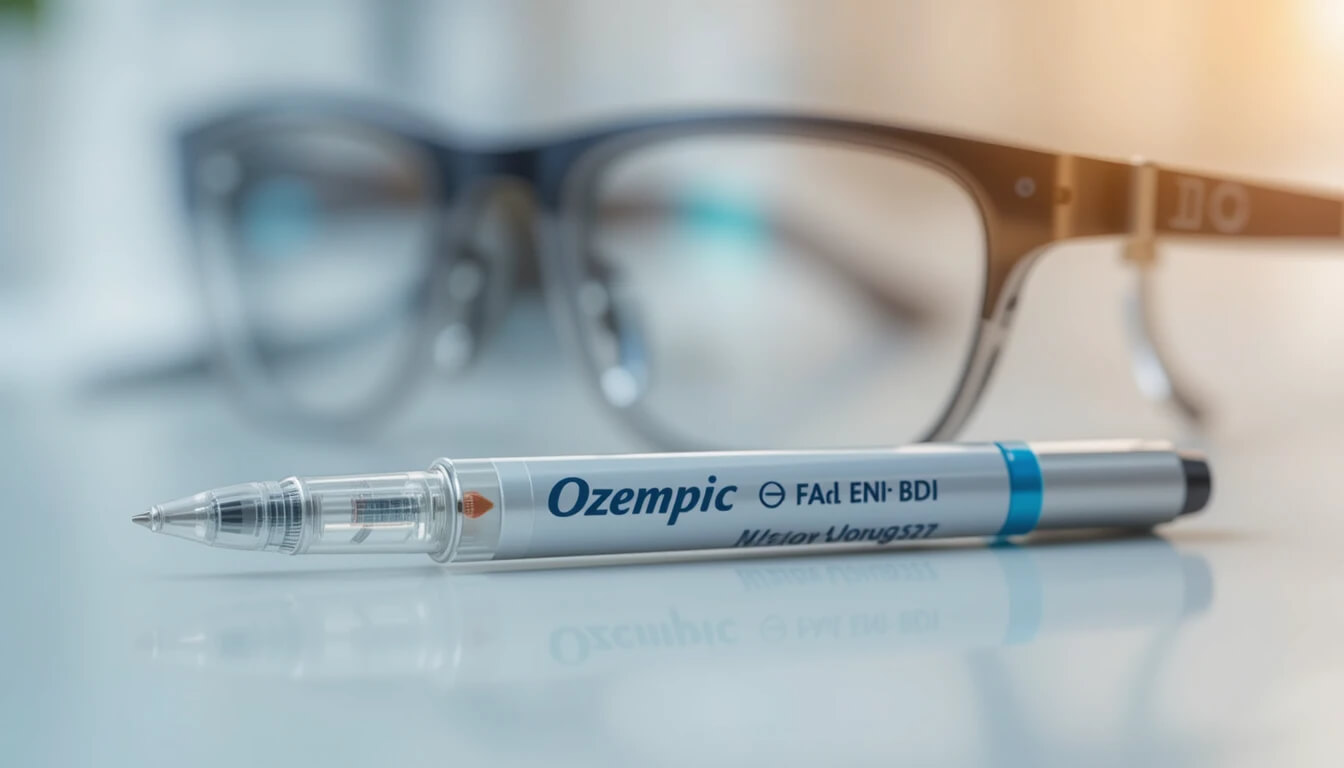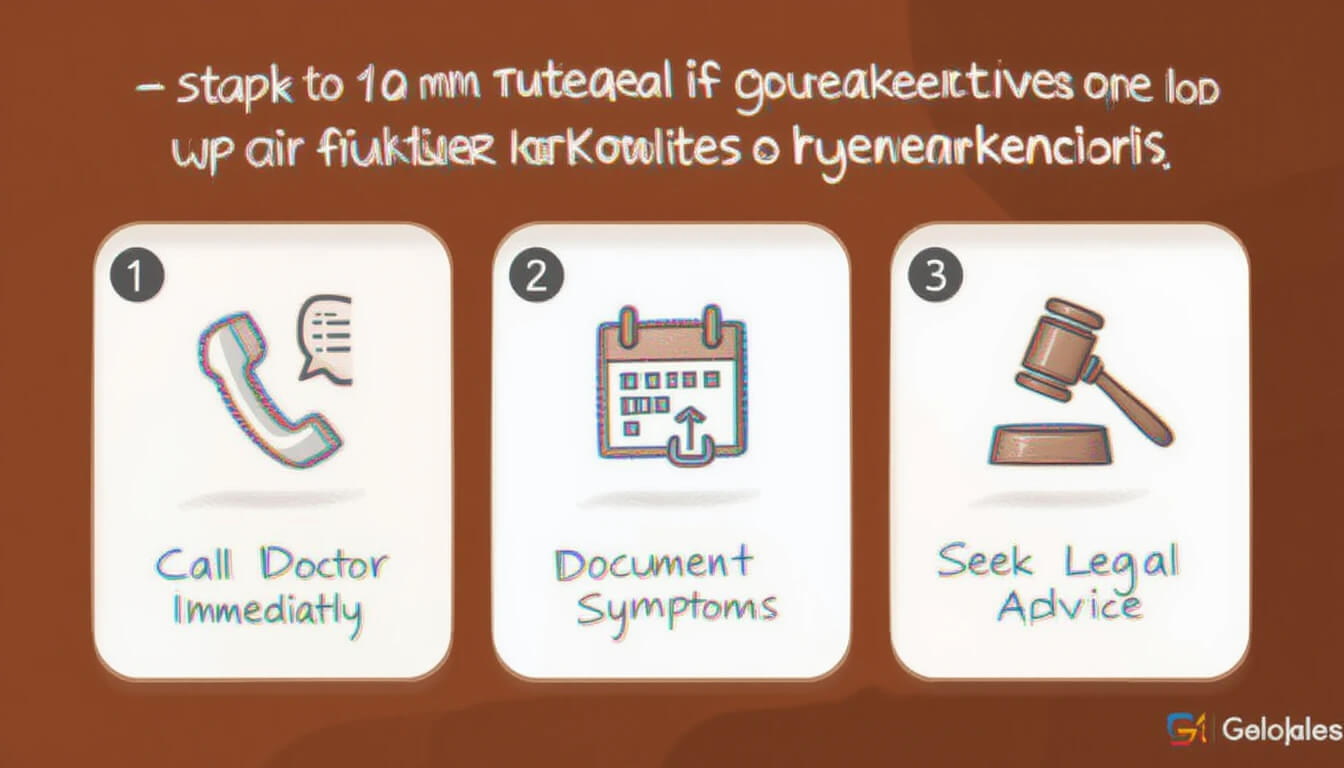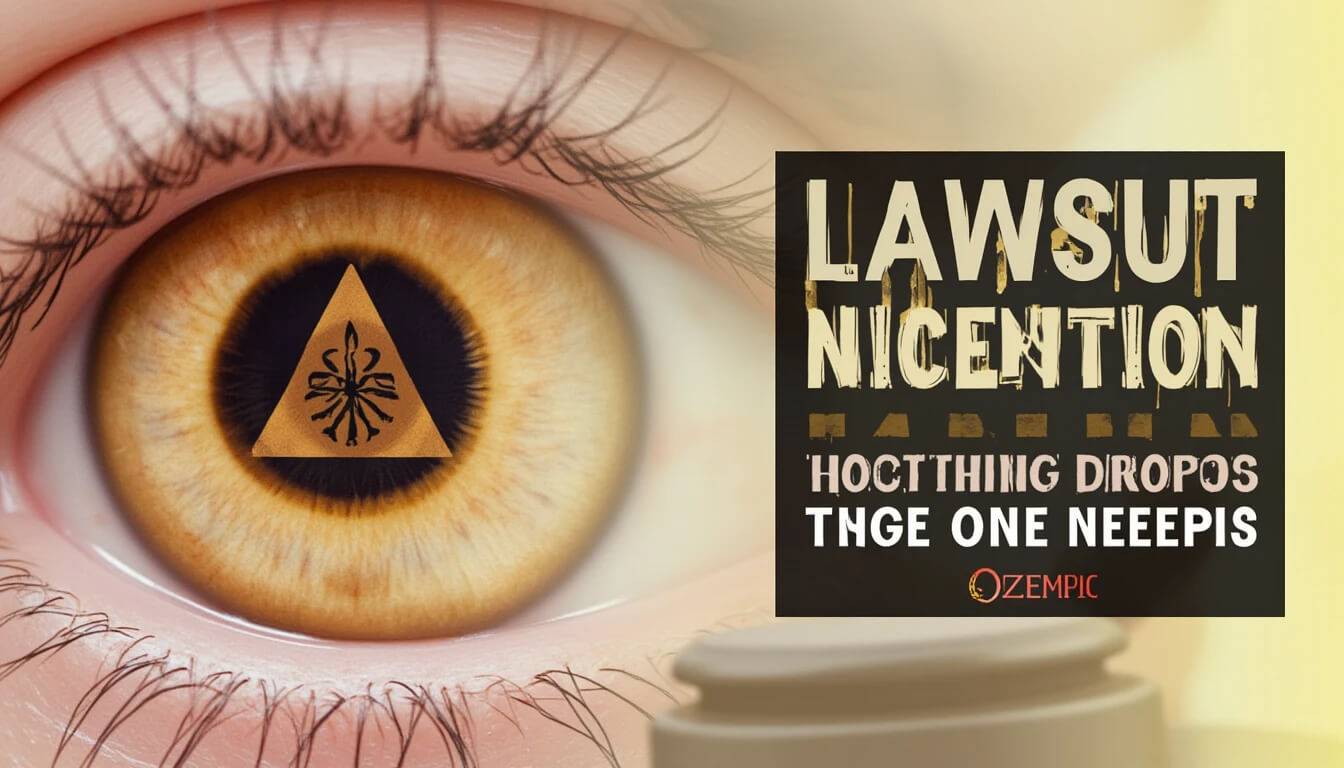Could your vision be at risk? We’re unpacking the shocking findings of a major US study and what it means for patients considering an Ozempic lawsuit.
Millions of people trust revolutionary drugs like Ozempic, Wegovy, and Mounjaro for managing Type 2 diabetes and weight loss. Their popularity has soared for good reason. But what if the medication meant to improve your health carries a hidden, devastating risk?
A groundbreaking US study has uncovered a potential link between this class of drugs (known as GLP-1 agonists) and a serious optic nerve disorder that can lead to permanent vision loss. This alarming discovery is now at the center of growing patient concerns and the basis for a potential wave of Ozempic lawsuit filings.
At Care and Prayer, we believe in empowering you with critical, up-to-date health information. In this comprehensive guide, we will break down the study’s findings, explain the specific vision-related risks, identify the drugs involved, and clarify what this means for you and your legal rights.

What is Anterior Ischemic Optic Neuropathy (AION)? The Vision-Threatening Condition
Before diving into the study, it’s crucial to understand the medical condition at the heart of this issue: Anterior Ischemic Optic Neuropathy, or AION.
Think of AION as a "stroke" of the optic nerve. The optic nerve is the cable that connects your eye to your brain, transmitting everything you see. AION occurs when blood flow to the front (anterior) part of this nerve is blocked, causing the delicate nerve tissue to be damaged or die from a lack of oxygen and nutrients.
Common symptoms of AION can appear suddenly and include:
-
Painless, abrupt vision loss in one eye
-
Blurriness or dimming, often described as a "cloud" or "curtain" over part of the vision
-
Loss of a specific field of vision (e.g., the top or bottom half)
-
Colors appearing less vivid or washed out
Unfortunately, the vision loss from AION is often severe and permanent. This is why any potential link to a widely used medication is taken so seriously by the medical and legal communities.
The Groundbreaking US Study: What Did Researchers Find?
The recent study, published in a major medical journal, analyzed a massive database of patient health records in the United States. Researchers aimed to see if users of GLP-1 agonists—the class of drugs that includes Ozempic, Wegovy, Mounjaro, and others—had a higher incidence of AION compared to patients taking other types of medications.
The findings were statistically significant and deeply concerning.
The research concluded that users of GLP-1 agonists had a notably higher risk of developing AION. While the overall risk is still considered low for any individual patient, this elevated association is a critical finding that wasn't previously listed as a primary warning for these blockbuster drugs.
This new evidence suggests a potential causal link that manufacturers may have failed to warn patients and doctors about, which is a cornerstone of product liability and a key factor in any potential Ozempic lawsuit.
For a deeper dive into the research, you can read more about the study's findings on credible medical news platforms JAMAWhich Diabetes and Weight Loss Drugs Are Implicated?
The study focused on the entire class of GLP-1 receptor agonists. While Ozempic is the most well-known name, the potential risk extends to other drugs that work similarly.
Key drugs in this class include:
-
Ozempic (semaglutide)
-
Wegovy (semaglutide - higher dose for weight loss)
-
Rybelsus (semaglutide - oral tablet)
-
Mounjaro (tirzepatide)
-
Trulicity (dulaglutide)
-
Victoza (liraglutide)
If you use any of these medications and are experiencing vision changes, this information is highly relevant to you.
Understanding Your Legal Rights: The Basis for an Ozempic Lawsuit
When a medication causes harm that was not adequately disclosed on its warning label, affected patients may have legal recourse. This area of law is known as product liability.
The primary legal argument in an Ozempic lawsuit concerning AION would likely be "failure to warn." This argument is based on the premise that the drug manufacturer:
-
Knew or should have known about the potential risk of optic nerve damage.
-
Failed to provide an adequate warning to doctors and consumers on the drug's label and marketing materials.
-
As a result of this failure to warn, patients were not able to make a fully informed decision about their health and suffered preventable harm.
Patients who have been diagnosed with AION or other severe optic nerve disorders after using these drugs may be eligible to file a lawsuit to seek compensation for medical bills, lost wages, pain and suffering, and diminished quality of life.
To learn more about FDA Announces Major Covid Vaccine Update: What the New Restrictions Mean for YouWhat Should You Do If You’re Experiencing Vision Symptoms?
If you are taking a GLP-1 agonist and notice any sudden changes in your vision, it is critical to act immediately.
-
Contact Your Doctor and an Ophthalmologist Immediately: Do not wait. Sudden vision loss is a medical emergency. Explain your symptoms and the medication you are taking.
-
Do Not Stop Your Medication Without Medical Advice: Abruptly stopping a prescribed medication can have other health consequences. Your doctor will advise you on the best course of action.
-
Document Everything: Keep a detailed record of your symptoms, the date they started, all medical appointments, diagnoses, and any expenses incurred.
-
Consider a Legal Consultation: If you are diagnosed with AION, you may want to speak with an attorney specializing in pharmaceutical litigation. They can evaluate your case and help you understand your options for pursuing an Ozempic lawsuit.

2. Should I stop taking Ozempic if I’m worried about my vision?
No. You should never stop taking a prescribed medication without first consulting your doctor. They can assess your individual health situation, discuss the risks and benefits, and determine the safest course of action for you.
3. Does this study prove that Ozempic causes AION?
The study shows a strong association or correlation, meaning users of these drugs had a higher rate of AION. While this is compelling evidence, it is not definitive proof of causation. However, this strong link is often sufficient to form the basis of a "failure to warn" claim in an Ozempic lawsuit.
4. How do I know if I have a valid claim for an Ozempic lawsuit?
A valid claim typically requires two key elements: (1) You must have used one of the implicated GLP-1 drugs (like Ozempic, Mounjaro, etc.), and (2) you must have a formal diagnosis of Anterior Ischemic Optic Neuropathy (AION) from a medical professional. Consulting with an attorney is the best way to have your specific case evaluated.
5. Are other side effects associated with Ozempic and similar drugs?
Yes. Besides this new concern about vision, Ozempic and other GLP-1 agonists have been linked to other serious side effects, including gastroparesis (stomach paralysis), pancreatitis, and thyroid tumors.
The link between popular diabetes drugs like Ozempic and a severe optic nerve disorder is a significant and concerning development for millions of patients. While these medications offer profound benefits, the potential for irreversible harm highlights the critical need for transparency from drug manufacturers.
This latest research empowers you with the knowledge to be your own best health advocate. By understanding the risks, recognizing the symptoms, and knowing your rights, you are better equipped to protect your well-being. If you or a loved one has suffered vision loss after using these drugs, know that the legal system may offer a path to justice through an Ozempic lawsuit.
What are your thoughts on this new study? Share your questions or experiences in the comments below. Don't forget to share this article to inform others!
The Care and Prayer Team is dedicated to providing clear, authoritative, and actionable content on today’s most important topics. We synthesize complex information into easy-to-understand guides to help you navigate your world with confidence.
Disclaimer: This article provides general information and does not constitute medical or legal advice. Consult with your healthcare provider for any medical concerns and a qualified attorney for legal guidance.
